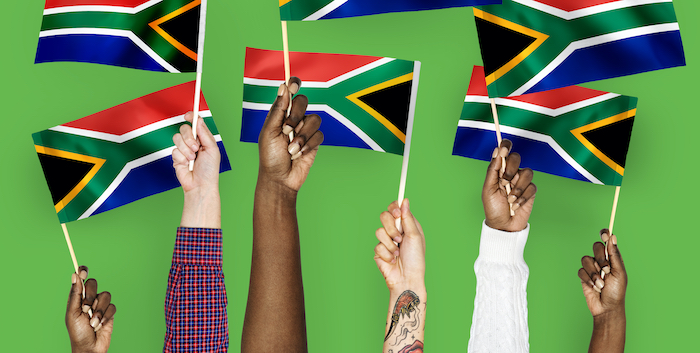South Africa’s political and economic landscape shifted significantly after the 2024 national elections. The ruling ANC’s dramatic loss of support resulted in a government of national unity – a pivotal moment in the country’s political history.
It is still too early to assess the unity government’s success. But it signifies an effort by political parties to agree on the values and principles that should guide behaviour and decision-making in the national government.
The unity government presents new possibilities for South Africa. In the words of President Cyril Ramaphosa:
to work together as political parties for the good of the country, and to deliver a government that will be united in action and purpose.
However, a key question remains: will it hold? The question arises because the unity government demands that its constituent parties cooperate, even though their respective constituencies may want different things.
Certain issues will put pressure on the coalition. Consequently, the unity government raises uncertainties about the country’s political stability and direction. Particularly given the coalition’s heavy reliance on President Cyril Ramaphosa’s facilitating leadership.
As a political science researcher, I have studied South Africa’s political landscape for the past two decades, and analysed its political risk.
Here I outline eight key factors – among others – that will shape the country’s short and medium term trajectory and test the strength of its unity government.
Depth of democracy
It was necessary to form the unity government to stabilise governance. But its durability is uncertain. The coalition’s middle ground may be strained as conflicting priorities arise among its members. Key are ideological differences over National Health Insurance and conflicting foreign policy issues.
At the same time, legitimacy and confidence in governance need to be restored. Voter turnout has declined – from 89% in 1999 to 58% in 2024.
If this democracy experiment fails, it could dent the confidence of voters and business. Forming the unity government improved business confidence to “cautious optimism”.
Incumbency and succession
Divisions in the ANC continue to threaten its unity. These were highlighted at the party’s 2017 elective conference. Ramaphosa narrowly secured re-election as ANC president, exposing serious rifts within the party. These internal divisions cast uncertainty over Ramaphosa’s effective leadership of his party. His successor might affect the ANC’s future role in the unity government.
The ANC’s national elective conference in 2027 will set the party’s direction and mark the end of Ramaphosa’s leadership.
Early jostling for positions in the ANC has begun, amid ideological differences over the future of the party, the unity government and the country.
Trust in government
Public confidence in government institutions has eroded since 1994, particularly at the municipal level. Protests at the poor – or lack of – delivery of basic services, including water and sanitation, are pervasive. Violent protests reflect growing dissatisfaction.
Declining trust in parliament and other governmental bodies – starting during former president Jacob Zuma’s term (2009-2018) – is a major concern.
Much of the electorate feels that voting changes nothing.
It’s uncertain whether the unity government can boost public confidence and trust.
Disparities and unemployment
Stark wealth disparities and unemployment exceeding 30% add to societal tensions. Youth unemployment is even higher.
The risk of large-scale political unrest has decreased since democracy in 1994. But frustration among the poor, unemployed and marginalised still carries the risk of sporadic riots and instability.
The violent protests in July 2021, mainly in the provinces of KwaZulu-Natal and Gauteng, are a reminder. The underlying factors for over 300 fatalities, looting and destruction stemmed from the state’s failure to address poverty.
The unity government needs to power economic growth, create jobs and reduce poverty.
Safety and security
Safety and security rank among South Africa’s most pressing issues. Crime rates remain alarmingly high, including organised crime and violence.
Trust in police is low, fuelling growth in the private security sector. There are now over 2.7 million registered private security officers and 150,000 police officers.
The “oldest and simplest justification” for government is to protect citizens from crime and violence.
The unity government must restore public trust in the police and enhance security.
Economic sentiment
Despite the country’s numerous challenges, the economy attracted nearly R100 billion (US$5.3 billion) in foreign direct investment inflows in 2023, equivalent to 1.4% of GDP.
Against expectations, inflows have exceeded outflows every year since the 2008/9 global financial crisis.
The country offers several advantages to foreign investors. These include world-class financial services and communication sectors, robust capital markets, quality tertiary institutions and a transparent legal framework.
It also has abundant natural resources, a strategic geographic position as a gateway to sub-Saharan Africa, and a degree of political and policy stability.
Crime remains perhaps the greatest deterrent for potential tourists. It’s also a pressing concern for business leaders.
Addressing crime must thus be among the top priorities of the unity government.
Government competence
Poor governance and a crisis of competence plague public administration, particularly at the local level. Service delivery failures, such as water provision, stem from inadequate skills and from corruption and maladministration.
State-owned enterprises also pose governance challenges. Eskom, the power utility, seems to be turning around. However, the Post Office, Transnet – the transport utility – and others exemplify systemic inefficiencies and corruption.
The July 2021 unrest underscored the state’s institutional weaknesses. The report on the riots stated that inadequate service delivery, bad living conditions, economic challenges and persistent poverty created fertile ground for unrest.
The unity government must foster a professional and effective public service that delivers tangible improvements.
Regional landscape
South Africa is not threatened by any neighbours. However, illegal migration has become a major cause for concern since the economic crisis in Zimbabwe began in the 1990s. Perceptions are growing that migrants are overwhelming the resources of the country, and take jobs from South Africans and engage in crime.
The presence of illegal miners, many from impoverished neighbouring nations, heightens social tensions.
The jihadist conflict in Mozambique and current political instability there pose regional security concerns for South Africa.
The country was recently forced to shut its primary border crossing with Mozambique, a hub for coal and chrome exports, amid the latter’s election-related protests. Addressing these regional dynamics requires a strong foreign policy stance and robust measures to pursue peace in Mozambique.![]()
Theo Neethling, Professor of Political Science, Department of Political Studies and Governance, University of the Free State
This article is republished from The Conversation under a Creative Commons license. Read the original article.














